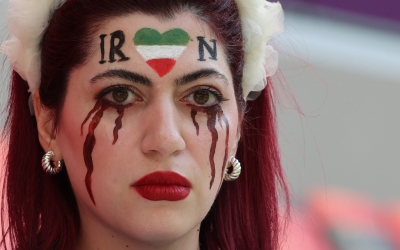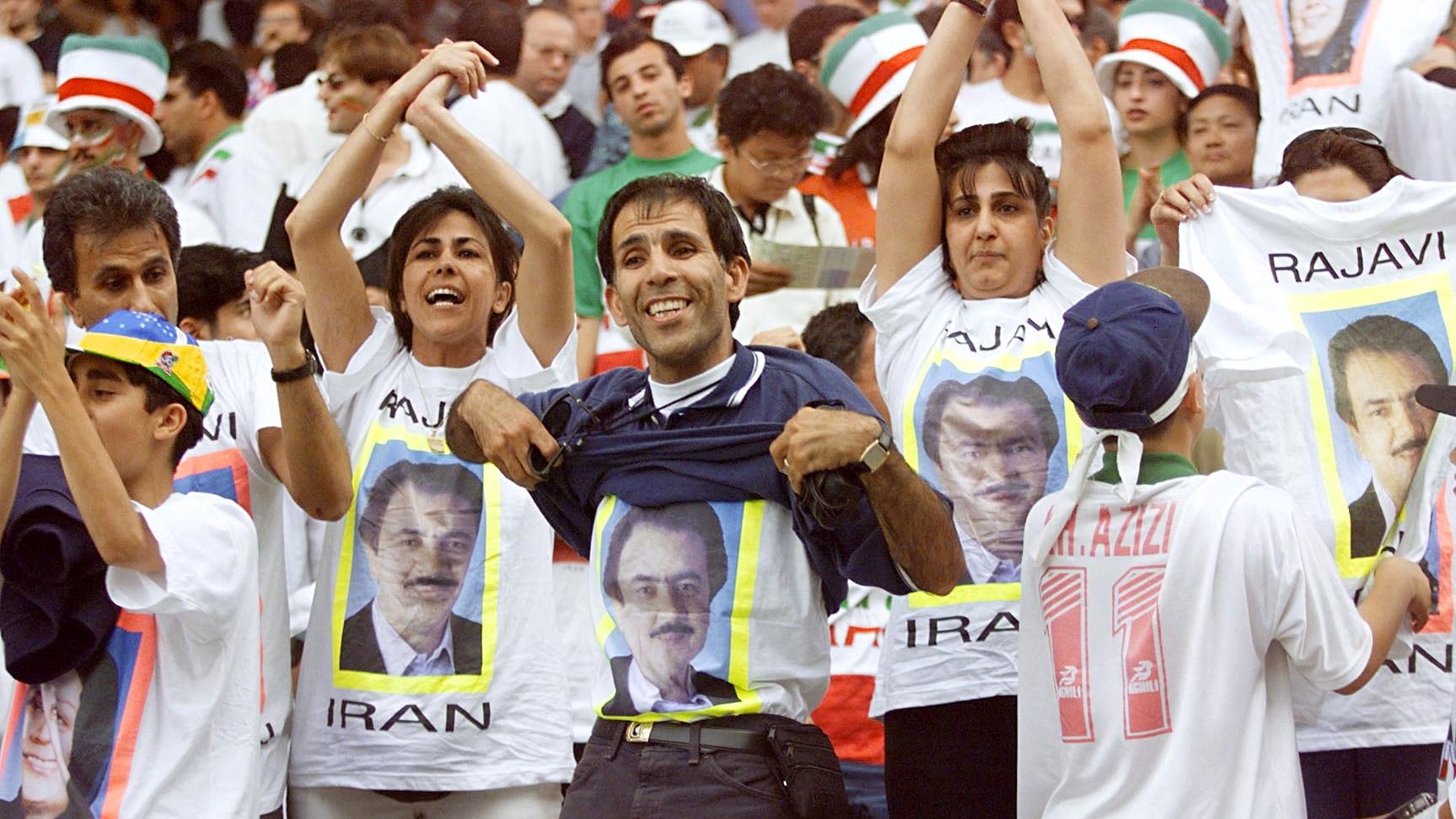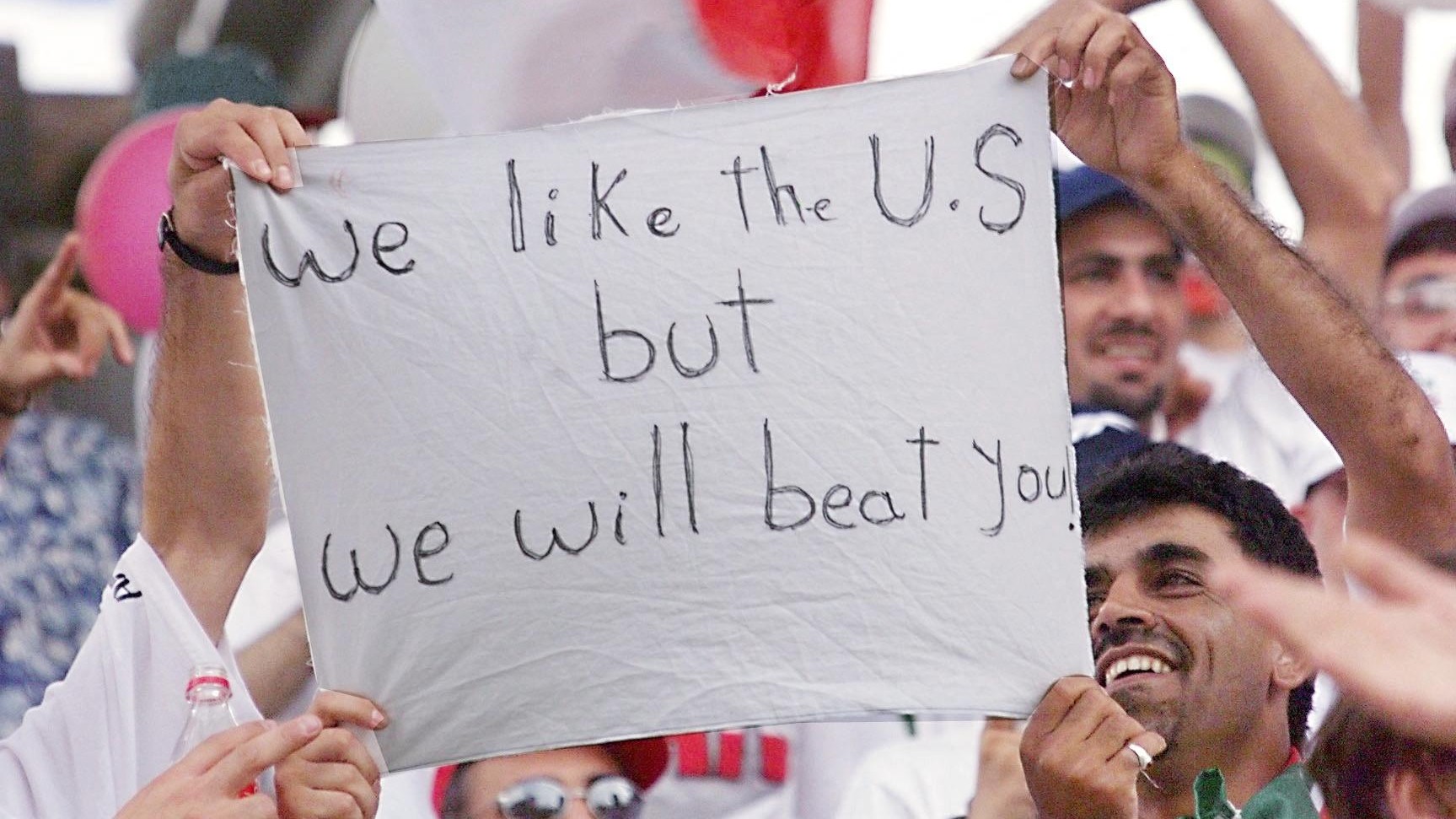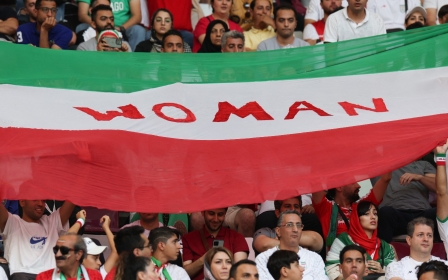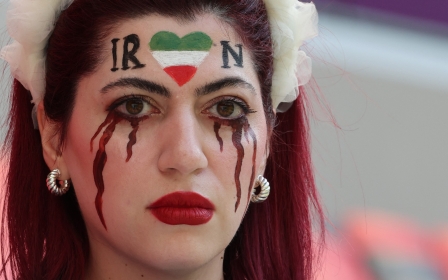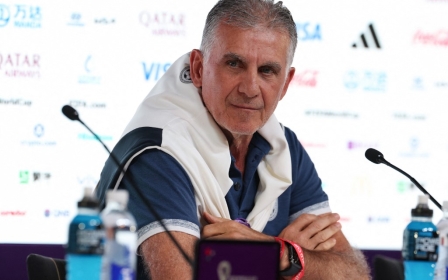World Cup 1998: When Iran played the US in 'the mother of all games'
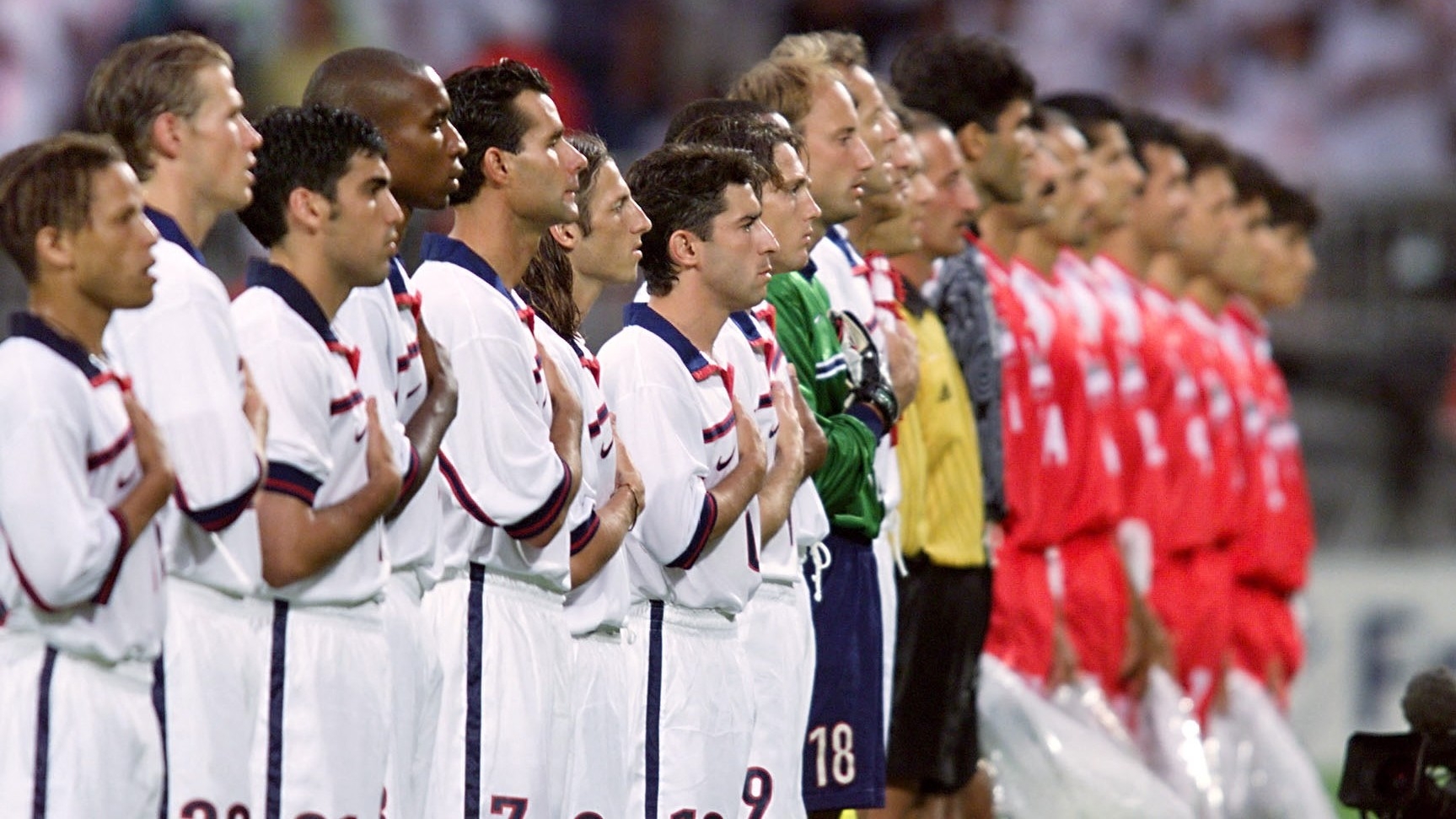
"The mother of all games".
That's how Hank Steinbrecher, the executive director of the US Soccer Federation, described the 1998 World Cup crunch match between the United States and Iran.
It was the first time the two sides had met at the tournament and the Group F game at Lyon's Stade de Gerland was fraught with political overtones long before kick-off.
Since the Iranian revolution of 1979, Iran's Supreme Leader Ayatollah Ruhollah Khomeini had routinely referred to the US as "the Great Satan", while US media described the match as a personalised conflict, grounded in deeply different cultural values.
'To me, they [MeK] were just a bunch of people who only knew how to speak Farsi. That's all. They were not my fellow citizens'
- Nima Nakisa, Iran's reserve keeper
Tensions had lingered between the two nations ever since the revolution and when a group of Iranian students took Americans hostage at the US embassy in Tehran for 444 days.
New MEE newsletter: Jerusalem Dispatch
Sign up to get the latest insights and analysis on Israel-Palestine, alongside Turkey Unpacked and other MEE newsletters
As a result of the crisis the US cut all diplomatic ties with Iran, and formal diplomatic relations have never been restored.
A month before kick-off, the US State Department continued its relentless attacks on the Islamic Republic, accusing Tehran of being the world's "most active" sponsor of terrorism.
For Iranian hardliners, the match was just another episode in a two-decade-long anti-American campaign, but for the reformist faction, the contest was a perfect opportunity to embark on a dialogue with Washington; one that could be "another step towards ending the estrangement" between the two nations, as then US President Bill Clinton had said.
Public sentiment in Iran was waning a year into Mohammad Khatami's presidency with unkept promises and a floundering economy lending to social problems.
The game, and a possible victory, would have contributed to a unique sense of solidarity among all Iranians of different persuasions, and marked a new path for the country's leadership.
So, when the two sides took to the field on 21 June 1998, three points meant more than just a last-ditch shot at a place in the knockout round. Much more.
Football prevailed
Despite the diplomatic bad blood, the mood prior to kick-off was nothing like the hostility that had dominated the relationship for the previous 20 years. Friendship instantly prevailed.
The Iranian team presented their American counterparts with huge bouquets of white roses that symbolised peace, while the two sets of players posed shoulder to shoulder for a one-off pre-match team photo; a shot for the ages.
Still, the Iranian footballers had to brace for a more significant menace, not coming from 11 Americans players on the field, but from thousands in a section of the stands supporting a designated terrorist group: the Mujahedin-e-Khalq (MeK) organisation.
Founded in 1965 by a group of leftist Iranian students, the MeK was involved in armed conflict with the forces of US-backed Pahlavi monarchy during the 1970s and played its part in toppling Mohammad Reza Shah in 1979.
The falling-out with Khomeini – the leader of the Islamic Revolution – and the ruling clerics over the governance of the country, forced the organisation into exile in France in 1981.
France expelled MeK leader Massoud Rajavi and much of the organisation's membership in 1986 as part of the deal with Tehran that saw French hostages held by pro-Iranian groups in Lebanon being freed.
The MeK left for Iraq and established its base in Camp Ashraf near the capital Baghdad.
Once designated as a terrorist group by the US for its alleged killing of Americans in Iran before the revolution, the group was responsible for the assassination of some high-ranking Iranian officials and ordinary citizens throughout the 1980s and 1990s, most notably former president Mohammad-Ali Rajaei and his prime minister Mohammad-Javad Bahonar.
Their support of Saddam Hussein's eight-year war against Tehran damaged their reputation amongst ordinary Iranians, and when they joined forces with the Iraqi government in conducting ill-fated attacks on Iranian soil – through the Shining Sun (Aftab), Forty Stars (Chelcheragh), and Eternal Light (Forough-e Javidan) operations – it was the final nail in the coffin for their credibility.
Mek has since attempted to reinvent itself as part of the Iranian exiled opposition, and successfully lobbied US and European governments to delist it as a terrorist organisation. Following the US invasion of Iraq, the group eventually moved its headquarters to Albania with US support. It holds mass rallies in France each year.
Why were they there?
To date, questions remain as to why the 7,000 MeK sympathisers attended the football match in Lyon.
Did they see the occasion as a launching pad for a political protest? Or were they just trying to create a bond with the Iranian people by cheering the national team?
Fifa had prohibited fans carrying political signs with them into the stadiums during the tournament, so spectators had to go through several checkpoints.
MeK supporters still managed to smuggle in banners, and took off their jackets to unveil T-shirts bearing pictures of the group's leaders once they were seated in their section.
"From the intelligence we had received we knew a fraction of the crowd would be looking to manipulate the game," Mehrdad Masoudi, Fifa's Iranian-born media officer, told Middle East Eye of the situation.
"The majority of the Iranians had come for joy and jubilation alongside Americans, and fans from other countries. For them, that was a footballing celebration. But there was this other group, who clearly had nothing to do with the football game.
"We had to be on the alert for all consequences, because I was sure Iranian fans would get in a row with them."
'Gave us extra motivation'
The circumstances were unlike anything Iranian players had faced before.
"To me, they were just a bunch of people who only knew how to speak Farsi. That's all. They were not my fellow citizens," Nima Nakisa, Iran's reserve keeper at World Cup '98, told MEE.
"They just came there to fulfil their political objectives. That gave us extra motivation to go out there and win the game."
Masoudi and his colleagues had quite a job on their hands in making sure that MeK's message would not be conveyed throughout the world.
"We issued the TV cameramen with photos so they knew which people and which banners to avoid. The match was being beamed around the world and the last thing we wanted was for this group to sabotage the occasion," Masoudi said.
Even the French riot police entered the stadium to prevent any pitch invasion and interruptions in the game.
Despite the off-field antics of the MeK, the game was everything the Iranians could have hoped for.
Iran drew first blood thanks to Hamid Estili's sublime header five minutes before the interval, and then Mehdi Mahdavikia doubled the lead with six minutes left on the clock to put his team on its way to a first-ever victory in the history of the competition.
Brian McBride pulled one back for USA in the 87th minute but Iran survived a late scare to win the contest 2-1.
The 2-0 defeat against Germany sent Iran packing by the end of the group phase, but nationwide celebrations triggered by the victory over the US were worthy of lifting the World Cup trophy itself.
Middle East Eye delivers independent and unrivalled coverage and analysis of the Middle East, North Africa and beyond. To learn more about republishing this content and the associated fees, please fill out this form. More about MEE can be found here.


